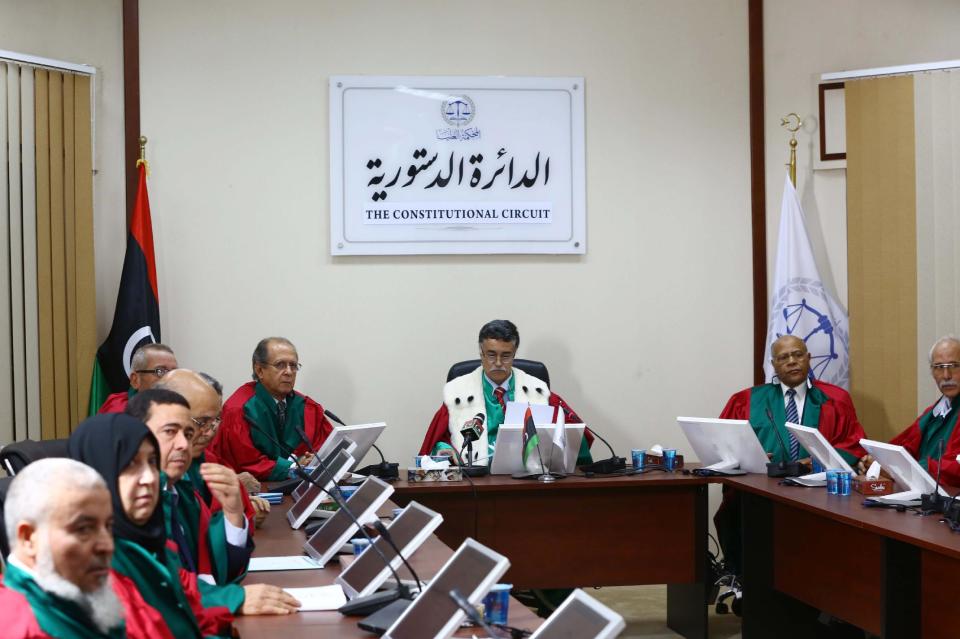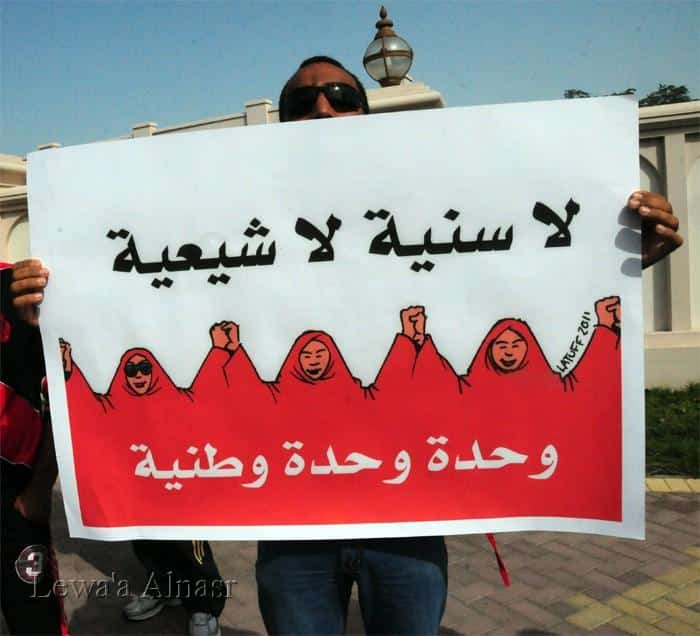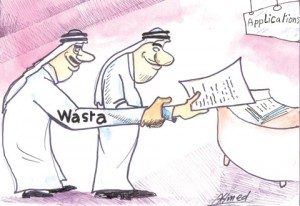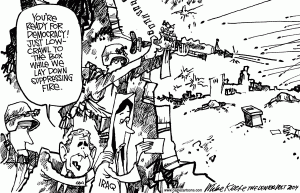I commenced my research in a broad context, exploring the various roadblocks to democratic liberalization in the Middle East. My first two entries aimed to dissect the institutional challenges embedded in Arab culture both economically and politically. As my research continued I realized it was necessary for me to focus on one country rather than the region as a whole in order to truly grasp the underlying dynamic that makes evolution so arduous. Examining the historical timeline of Gaddafi in class prompted me to unearth the facets of the Libyan crisis from the fall of the regime, to today. I explored the nations ups and downs throughout its revolutionary process, aiming ultimately to comprehend how it dissented into a sectarian proxy war.
Our readings from Controversies of Globalization introduce the idea that growth “creates a favorable climate for democracy consolidation.” In other words democracy is not a system that can be implemented over night, but rather a process that requires time to progress and develop. Methods of aid by western powers have been ad-hoc and unorganized, consisting mainly of ousting a corrupt ruler and constructing a “democratic” electoral process to put another one in power that they believe will serve their national interests. While these elections are democratic in theory, they are entirely antonymous in practice. My blog basically conveys how monetary assistance in the hands of corrupt authoritarian leaders does not lead to fair democratic electoral processes or stable government institutions, but rather an ongoing crony capitalism mess facilitating further corruption and social fractionalization. Democracy promotion assistance should basically shift to a “broader context,” creating stability in civil society and economic activity before trying to place an abrasively new system in the hands of authoritarian leaders. Instead of promoting corrupt elections and divided political parties, western powers must assist the Arab states in reducing poverty and promoting economic growth. Doing so will reduce unemployment, stimulate economic activity as well as foreign investment, and help to combat corruption and poor governance. Rather than solely a political institution, democracy encompasses all socio-economic realms. Prior to the establishment of a democratic government there must be a population that is ready and able to participate in it, forming the government fairly for themselves rather than struggling with one implemented by foreign powers.
Based on the idea of crony capitalism, I focused on wasta as another barrier to liberalization. Wasta is basically a system of Arab networking, granting positions of power to those within a social circle. Their focus on collective ties and social networks for hiring processes undermines equality, competition, and diversity, which are all crucial components to a capitalist economic system. The biggest roadblock in economic prosperity in the Middle East is the lack of wealth distribution, the majority of it being concentrated in the hands of the few elites. Because there’s usually not a capable government in place to effectively eliminate this practice, it flourishes. The masses who lack the advantage of social ties live in unemployment and poverty, festering civil strife and intensifying frustrations over inequality and corruption.
From here I began redirecting my focus on a specific nation rather than the Middle East as a whole. I read an article depicting post-Gaddafi Libya as “a political tabula rasa” which is Latin for a political blank slate, conveying that Libya is tasked with ultimately rebuilding their society from scratch, which is a burden that typically takes countries centuries to complete. After the ousting of Gaddafi western powers set up democratic elections enabling the people to “choose their own leaders.” Referencing back to my research on democratic elections in the Middle East, we can assume without much thought that this process did not go as planned, especially in the midst of complete socio-economic degradation and militant groups fight for power. The General National Congress was dominated with Islamic coalitions funding militant groups for their own insurance rather than working towards their disbandment. As chaos deepened they knew they would loose the election, so they simply delayed having one all together. A new secular parliament held elections and took power, gaining recognition from the international community. Islamic groups initiated attacks and bombings on Tripoli where this internationally recognized parliament convened, as well as on the Tripoli International Airport and major Libyan oil fields. The GNC fled to port city Tobruk, and have been ruling the nation from there ever since. Islamic militant groups took control of Tripoli and Benghazi, supporting their own government in opposition to the GNC. Libya is simply split into two separate governments, ruling in two separate major cities, and militant rivalries in support of these distinct governments are in direct conflict with each other. The forces are basically pro-Haftar and Operation Dignity versus pro-Congess and Islamist Operation Dawn. In other words, Islamist and Islamist affiliate versus secular.
As the conflict turned into a sectarian war, it pivoted from a civil conflict to a regional one. With the insurgency of ISIL preying on weak nations in the midst of anarchy, Libya is a regional liability following behind Iran and Syria in becoming another Islamic State. Libya has become an “arena for a battle between regional rivals.” UAE and Egypt are backing General Haftar’s Operation Dignity and other countries such as Qatar and Turkey are funding the Islamist Operation Dawn.
“No war is an Island” is a notion David Brooks from the New York Times developed to describe Middle Eastern conflict as whole, introducing the idea that these battles and crises ultimately converge into one. Scholars have said that ongoing chaos in the Middle East has been a precursor to a 30 Years War, much like that of England in the 17th century, dividing the region by religious affiliation. Richard Haas from the Council on Foreign Relations depicts these conflicts as “an overlapping series of proxy wars that could go on for decades and transform identities, maps and the political contours of the region.” In other words, it would be wrong to claim that any Middle Eastern conflict is uncorrelated with the rest. Haas says that the last regional struggle in 1979 over the Arab-Israeli dispute was basically a clash of civilizations between Western Democracy and Middle Eastern autocracy, but now the regional struggle is a clash between Arab civilizations and over what will come of its future.
Douglass Murray from the spectator says that there will need to be a Treaty of Westphalia-style solution in which the Middle East will need to redraw the boundaries that have already been “bursting for decades.” Douglass says that the conflict is based on religion, Sunni vs. Shiia, and behind these two sects are the two opposing regional powers, Saudi and Iran, with their affiliated proxies driving the conflict(s) forward.
In terms of perspectives on globalization we can conclude that the Middle East is struggling to consolidate their historically radical tendencies with modern liberalized values and institutional structure. While some nations are moving away from their traditionally isolationist principles and radical theocratic rule of law, others are fighting for its preservation. Parts of the Arab world want so badly to participate in global trade, adopting market liberal ideas to further their economic growth and progress, yet corrupt regimes have continuously halted this success. The nations who want to progress are becoming directly in conflict with those who do not, religious differences fueling the fire, leading to a regional struggle for power and modernity.
My understanding of the Middle East is very fresh and it was only about a year ago that I aimed it to be my focus. Since then I’ve found it extremely difficult to keep up with the ongoing current events, and even more difficult to grasp the historical information necessary to completely understand these current events. With so many conflicts and crises throughout history, the complexity of the region is tremendously dense. In my research on Libya I was forced to narrow my focus on one nation, developing my understanding of its history and its current conflicts. Before when I read Middle Eastern news I would bounce around to different articles, gaining a little bit of knowledge from each rather than a full scale understanding of one concept. This project forced my to focus on Libya and Libya alone, and I am so thankful for it. Not only was I able to grasp concepts about Libya I wasn’t previously aware of, but I was able to grasp them in their entirety, which in turn enabled me to comprehend many of the other regional conflicts with clarity.








